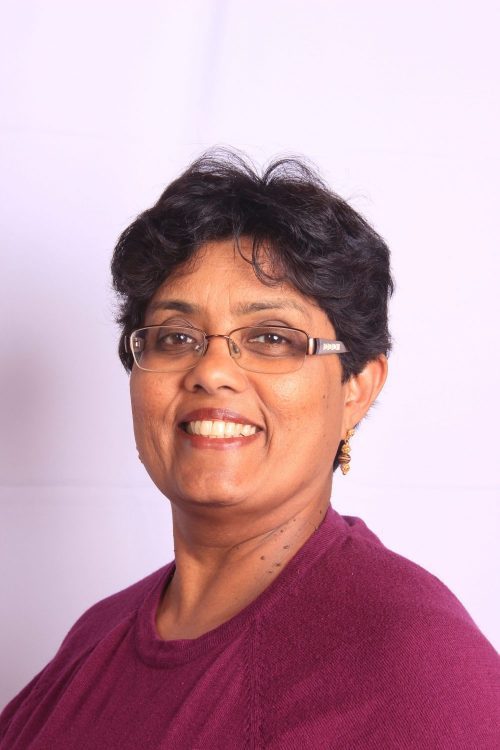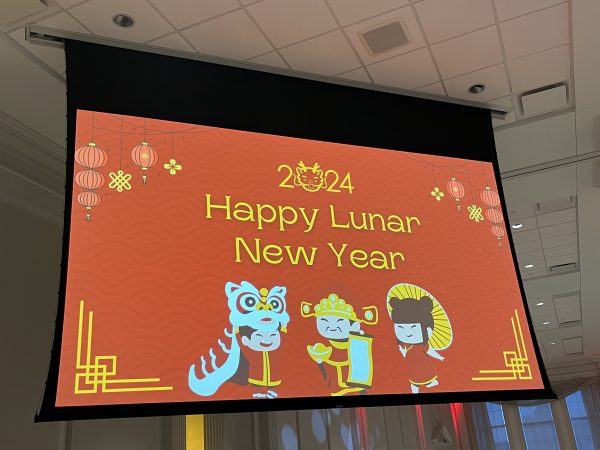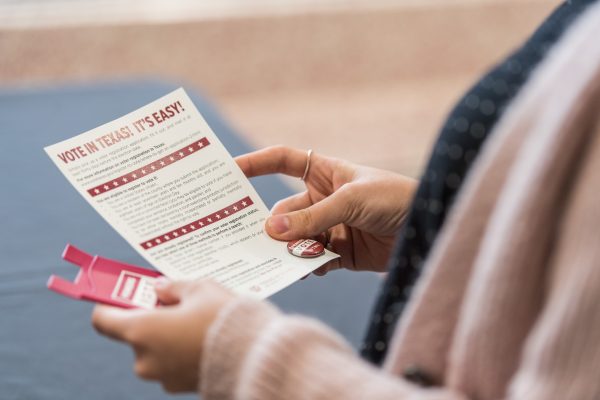Texas Woman’s University is hosting a discussion next week that is aimed at exploring why women should seek mentors to navigate the workforce.
The lecture on successful advising relationships, hosted by TWU’s Center for Women in Business, will be Tuesday, April 9, as part of the Women RISE training series. The discussion, entitled “Women RISE – Mentoring that Works,” will be led by TWU marketing professor Dr. Pushkala Raman, who will share her research on mentoring and women in the workplace. The event will take place from 7:30 to 9 a.m. at STOKE Denton, located at 608 East Hickory St. 128.
Raman said it’s important to have this conversation with women, so they know that it’s OK to reach out to others for guidance.
“Women feel that they are expected to know all the answers, otherwise they will not be taken seriously,” Raman said. “So one reason we talk to women about mentoring is (so they know) there is no shame in asking for help. Someone has already walked the path that you want to walk, so why reinvent the wheel and repeat the same mistakes?”
Raman said that many women may feel alone in the business world, and she hopes the discussion will help inspire them to begin seeking out professional connections.
“When you’re on your own, you don’t know where to go, and so this is just a way of telling them (attendees) that you do need a mentor, there is no harm in asking for one, and possible reasons (sic) of where you can find one,” Raman said.
Raman said that, while women don’t necessarily need more professional support than men, they do need help finding the guidance that is available, which is one reason the discussion is so important.
“I think everyone needs support, but for women to find that support is harder,” Raman said. “Because of the multiple responsibilities we have, the first instinct is ‘let me finish all my work and get to my family,’ so there are fewer times when you get to hang out socially. It’s not that women need more or less mentoring (than men); it’s how to build those paths for them.”
Tuesday’s lecture is heavily influenced by research Raman did last year on creating ideal workspaces for women.
“Companies want to increase the number of women, who are 47 percent of the workforce,” Raman said. “’Is there a difference in the way we have to mold the organization to make it more attractive to women? What is it that entry-level women are looking for? (What about) midlevel managers and senior managers?’ That’s the question I started out with.”
Raman said she discovered that women’s needs in the workplace go beyond what many employers might think.
“I spent time talking to 50 women from different walks of life, and they gave me different factors, then I surveyed about 330 people,” Raman said. “I found that it’s probably not very different from what men want in their workplace, but the emphasis they lay on different things was very different. When you talk to companies, they will say ‘we’re giving lactation rooms and clean bathrooms,’ but that’s really not the first thing that comes to their minds. We’re really talking about physical safety…and mentoring and training.”
Effective mentoring today looks different than traditional mentor-mentee relationships, according to Raman.
“I think we have to get away from the old mentoring model where there’s only one mentor because different people can provide different parts of it,” Raman said. “I think that’s something that we have to realize.”
Raman also said that technology has helped reinvent mentoring, expanding options and making it more accessible.
“I think it has improved it because now I can find a mentor sitting in L.A. and still develop a rapport with that person,” Raman said. “Or if you have a favorite mentor that moved away to Canada, you can still continue that relationship. The other thing that’s very interesting is crowdsourcing of mentoring.”
Raman said things like Facebook groups provide a unique mentoring environment that allows multiple people to give professional advice and help one another.
“It is an aspect of mentoring, and we shouldn’t ignore that,” Raman said.
Raman said that, if she could give one piece of advice to women who have never had a mentor before, it’s to network.
“The more you show your face – and I think women have a problem with that, we tend to be more homebodies because we’re so task-oriented – the more you are with people, the more people you’re going to connect with, and then your smorgasbord of mentors is greater,” Raman said.
The lecture is free and open to the public. For more information, visit the TWU events page.







Be First to Comment